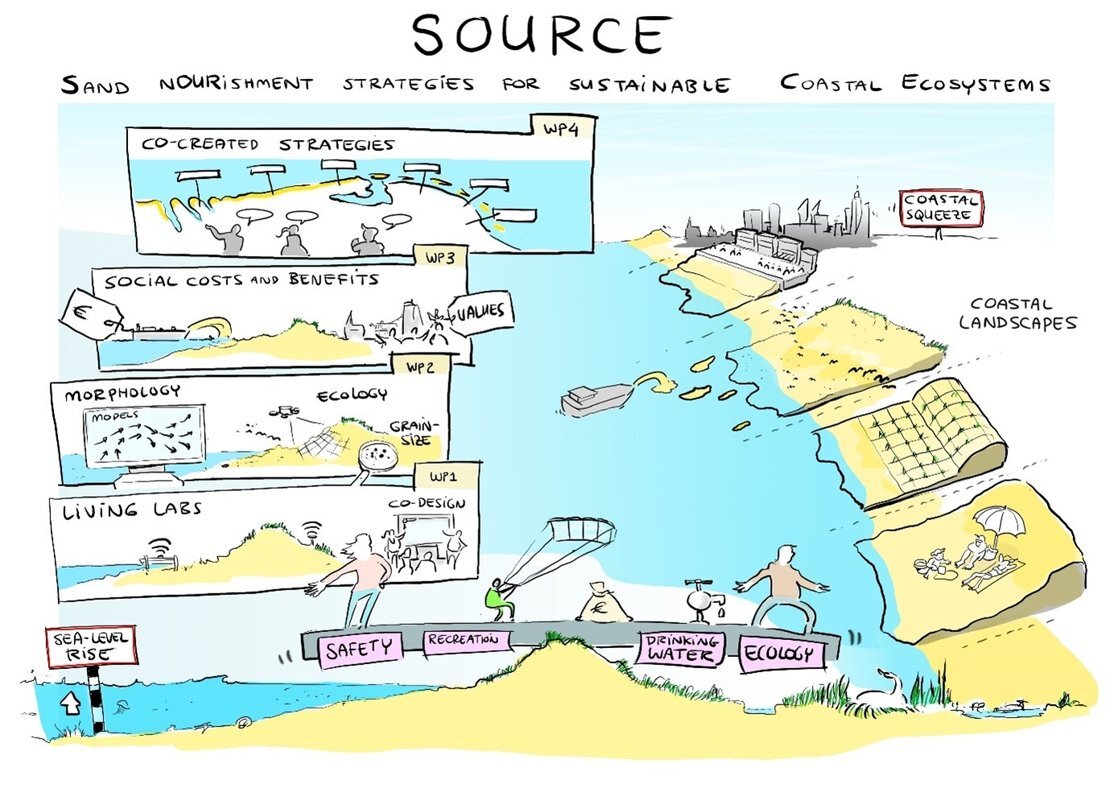HZ research group Building with Nature of lector Wietse van de Lageweg is one of the partners in SOURCE. The project revolves around accelerated sea level rise, a threat to coastal areas worldwide. As a result, beaches are becoming narrower and coastal erosion is increasing, while there are more and more users of coastal areas.
Two living labs
There are two living labs within the project, one of which is the Southwest Delta. The HZ and over 25 partners in the consortium conduct the research in these living labs. Within the Southwest Delta, the recreational sand fund plays an important role. It is a fund in which five coastal municipalities of Zeeland, the province, the water board and Rijkswaterstaat work together every year to keep the beaches up to standard from a recreational point of view. "We have always supplemented for flood safety. Within SOURCE we want to investigate how we can integrate nourishment for both flood safety and recreation into the policy. This requires a fundamentally different way of working and operating. But that is necessary to shape our multifunctional, climate-proof coast of the future," Van de Lageweg said.
Duration of six years
The research has received an NWA-ORC grant of five million euros and will run for six years. In addition to HZ University of Applied Sciences, the consortium includes University of Twente, Deltares, University of Utrecht, TU Delft, Wageningen University and Research, the Free University of Amsterdam, governments and numerous partners from home and abroad.

